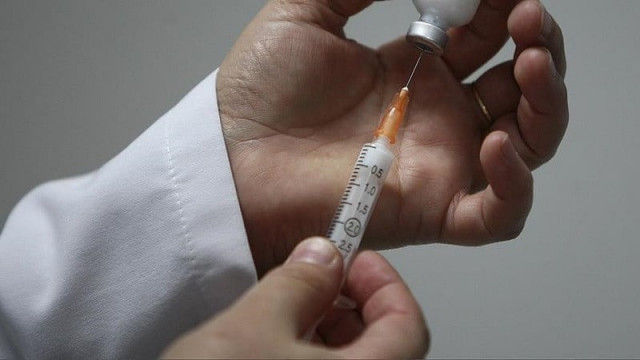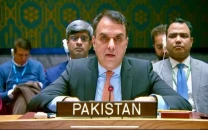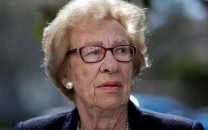Dengue vaccine tests successful for 1st time in epidemic-hit Bangladesh
Single-dose vaccine demonstrates safety, effective against all 4 dengue serotypes, shows study

A dengue vaccine has been successfully tested for the first time in Bangladesh, raising hopes for the south Asian country to overcome the epidemic, scientists revealed in a new study, according to a statement on Thursday.
The single-dose vaccine, TV005, demonstrated safety and immune responsiveness in children and adults, tested effective against all the four dengue serotypes, according to the study published in The Lancet Infectious Diseases journal on Wednesday.
Scientists from the International Centre for Diarrhoeal Disease Research, Bangladesh (ICDDR, B), a Dhaka-based international health research organization, and the Larner College of Medicine at the University of Vermont conducted the study, the ICDDR, B said in the statement.
Dengue fever, a mosquito-borne virus, is spreading throughout the world, especially in tropical regions. Mild cases cause fever and bone pain, while serious ones are associated with shock, bleeding, and sometimes death.
Public health specialists have urged authorities in Bangladesh to improve healthcare facilities as the country struggles to deal with rising cases, up to five times higher than cases reported by the government.
Other countries in South Asia are also experiencing surging outbreaks, while this year is Bangladesh's worst on record as cases overwhelm hospitals in the capital Dhaka, the ICDDR, B added.
“Currently, fluid management and symptom control are the only available treatments for dengue. Vaccine development against all four serotypes (a tetravalent vaccine) is a high global priority,” said the statement.
As of Thursday, Bangladesh reported a total of 967 deaths and nearly 200,000 cases of hospitalization due to dengue this year, a record of both figures in the last 23 years.
Read also: Thousands protest over Bangladesh's 'enforced disappearances'
It said the study was a phase 2 randomized and controlled clinical trial evaluating the vaccine's safety, immunogenicity, and three-year durability.
Investigators followed 192 volunteers in four age cohorts up to 49 years old who received the vaccine or placebo over the course of three years, beginning in 2016. The jab was shown to be well-tolerated, the study noted.
Antibodies to all four dengue serotypes were found in most volunteers after vaccination, while individuals who had been infected previously had higher antibody counts. Though the study was not designed to evaluate efficacy, no cases of dengue were detected in vaccinated volunteers.
The University of Vermont has been evaluating dengue vaccines developed by the US National Institutes of Health (NIH) since 2009.
Participating investigators at the ICDDR, B include lead investigator and senior scientist Rashidul Haque, and key contributors Md. Shafiul Alam, Sajia Afreen, and Md. Masud Alam.
"The development of an effective and tetravalent dengue vaccine is a very high priority for the large population of Bangladesh, which is now having increasingly severe dengue outbreaks," stated Haque.
"The TV005 vaccine is the only single dose tetravalent dengue vaccine, which is an important feature of this vaccine," the University of Vermont team leader Beth Kirkpatrick said in the statement.
Subsequent studies, including the efficacy, durability, and immune responses to the vaccine are ongoing throughout the world, the study added.



















COMMENTS
Comments are moderated and generally will be posted if they are on-topic and not abusive.
For more information, please see our Comments FAQ